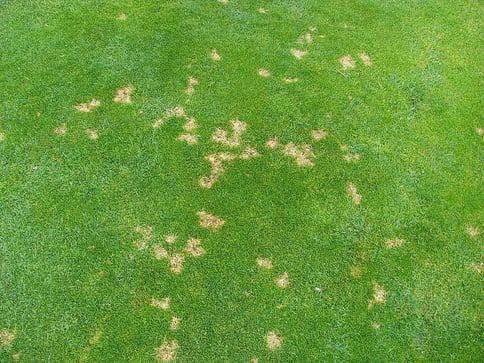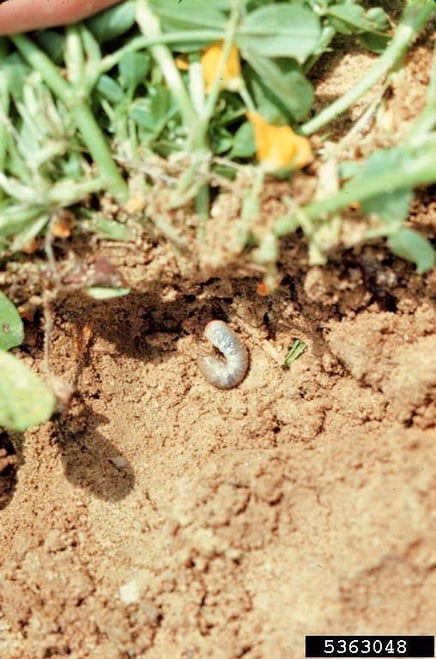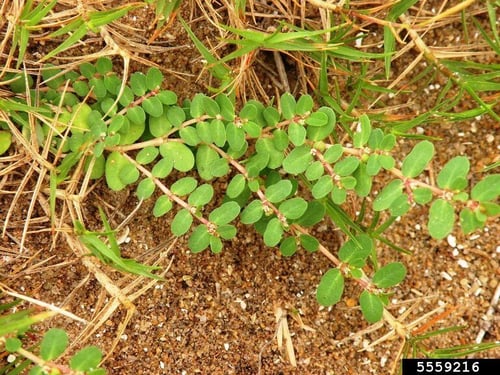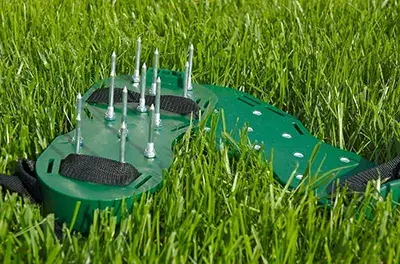
Dollar spot fungus is on Bermuda lawns, which thrives in humid, wet environments. There are several symptoms of dollar spot:
- Discoloration
- Spots varying in size up to 6” in diameter
- Sunken turf
- Stringy fungus growing on diseased blades

Dollar Spot Fungus
Other summer lawn diseases include take-all patch and black sooty mold.
Thatch buildup hinders your grass from absorbing the air, water, and nutrients necessary for robust root growth and overall lawn health. Remove this excess organic matter by dethatching and mowing your lawn.

Thatch Buildup
Grubs are on the move! White grubs feast on grass roots, causing damage or even killing your turf. Look for these signs of grub activity in your lawn:
- Discolored areas
- Patches of dead grass
- Birds digging in the lawn
- Grubs appearing on sidewalks or near your turf

Summer weeds, such as spurge, are spreading fast. Poor turf health and irregular mowing can lead to these pesky weed infestations.

Creeping Spurge Juan Campá, MGAP, Bugwood.org
Just give us a call if you see these pop up on your lawn between regularly scheduled visits and we’ll come out for free (for customers with 6+ applications)
Summer drought is a constant challenge in Texas, putting significant stress on turf, causing it to wilt, discolor, or even go dormant. While your grass can survive without water for a short period, this varies based on factors like grass type and soil conditions. Drought stress can result in several problems, including:
- Slow growth
- Poor overall health
- Increased vulnerability to diseases, pests, and weeds
- Reduced water retention

Drought Stressed Lawn
Temple is currently free from water restrictions, with many regions easing their limitations to stage 1. Thanks to the recent rains, two nearby lakes have reached full capacity.




